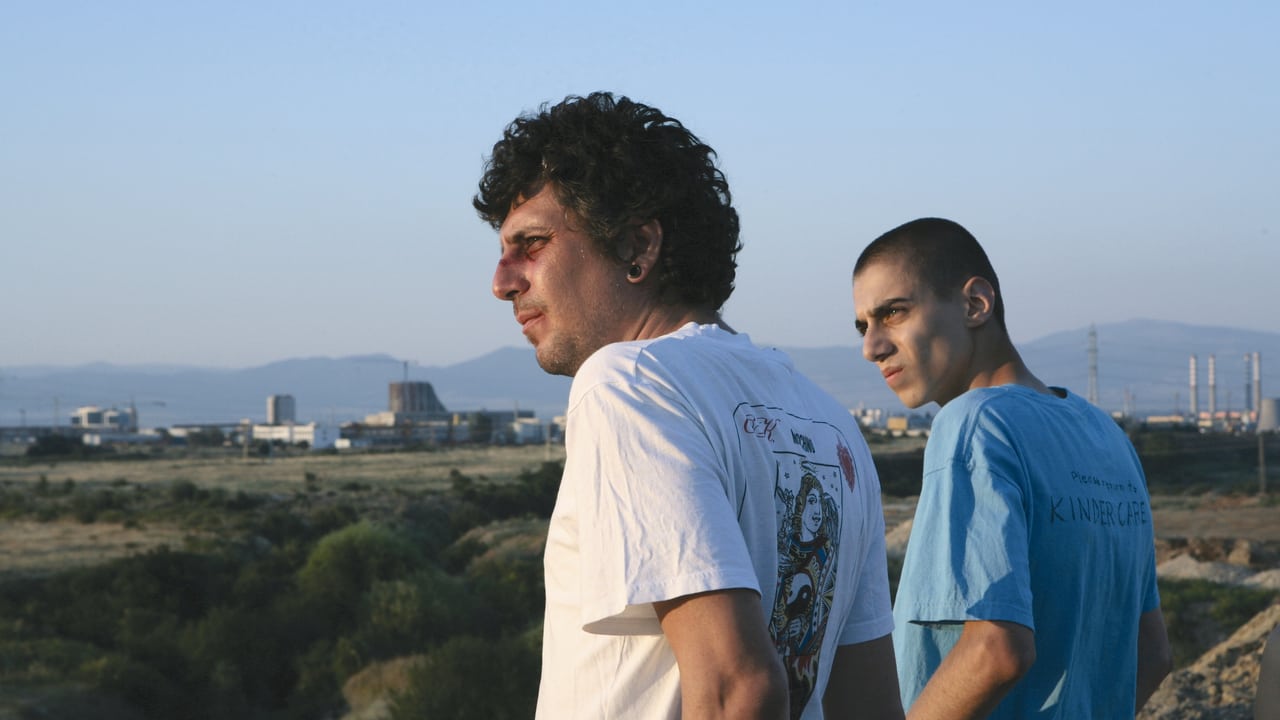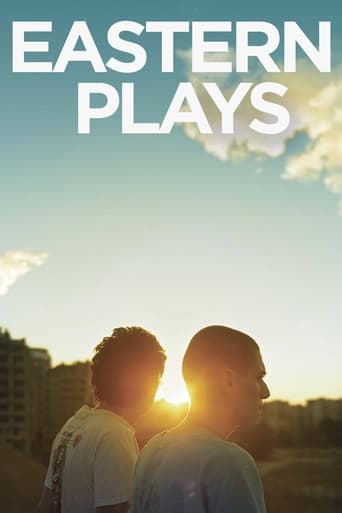

This is the most important Bulgarian movie for the past 20 years. I highly recommend it for everyone who have never watched anything from this country. The acting is honest and breathtaking. The story is simple and so real, that can make you cry. The cinematography work is very stylish and keeps you close to the characters from the beginning to the end. Eastern Plays is an absolutely stunning piece of filmmaking. This is the movie that Bulgaria needed for so many years and for so many reasons. I am sure that such a film can be made just once in a generation. When i've watched it for the first time, i was deeply moved and shocked, because i knew that the movie will be good, but i've never expected something so strong and real. If i have to be honest i have lost hope that people in Bulgaria have the courage and will to talk so direct for such important subjects as drugs, racism and the broken bond between contemporary Bulgarian generations. Especially the filmmakers. And that's why i think this movie appears in a very important moment not just for the Bulgarian film industry, but for the Bulgarian society at all.
... View MoreStaged in current day Sofia this film portrays the effects of an all too known and all too frightening blind hatred toward anyone that is different. Two brothers, one an artistic drug addict on the mend, the other a racist. Once divided now brought back together by a single event that forever changes the lives of all.Dark and dreary, scary and painful. Films that tangle with racism in the way this film does always are like that. It settles like a huge weight on the stomach and doesn't lighten for many long moments. It never gets too heavy though - it's just right.The acting work is fitting, the characters displayed are real. And this makes it all the more scary. It's all too easy to feel a form of compassion for all of them, which adds a lot to the film.8 out of 10 life altering choices
... View MoreIt has been quite some time since a film genuinely moved me. This past week or so, I have sat through and enjoyed, to varying degrees, Scorsese's Shutter Island and Polanski's The Ghost Writer. Both were polished, well-made, clever films (the latter perhaps slightly more than the former), but I will soon forget them. I don't think I'm going to forget Eastern Plays anytime soon. This Bulgarian film by Kamen Kalev is, well - why beat around the bush ? - a great work of art. Superbly shot in a Sofia filled with graffiti-covered buildings and vacant lots, Eastern Plays tells the story of Itso, an addict on methadone who has to drink beer more or less constantly to dull his pain. Quite by chance, he intervenes when a family of Turkish tourists gets attacked and beaten by a gang of Neo-Fascist thugs (led by a terrifying Alexander "The Indian" Radanov). This gradually leads to a relationship between Itso and the breathtakingly beautiful Isil (Saadet Isil Askoy), whose innocent, optimistic spirituality gradually begins to lift Itso out of the painful doldrums of his beery existence. I don't know what to praise most about this film : its portrayal of a modern Bulgaria adrift between racist youth gangs and football hooligans, the parents completely out of touch with the world of their children ; the incredibly true-to-life performance by Christo Christov, who died of an overdose before the film was finished shooting ? I think finally it is the luminous presence of Saadet Isil Askoy, who brings a sincerity and optimism to the film's grim context, as she tells Itso that we are all living in a time where people are sick inside, but that she feels a change is coming. This is not just a film about contemporary Bulgaria, although it is that as well. It is a film that captures a certain Zeitgeist of the early 21st century, in which, especially in post-Communist Eastern Europe, a restless youth with nothing more to believe in attempts to fill the gap inside them as best they can : with drugs, alcohol, headbanger rock, neo-fascist thuggery, or, in a few precious, fragile cases, with art and music. I have not recently seen a more deeply moving scene in a film than the one is which a desperate Itso consults his psychiatrist : all he wants to do, he says, is find the goodness within himself. He wishes he could radiate light like a crystal, and love all human beings, but he does not know how.
... View MoreBulgarian cinema is witnessing a new resurgence after the demise of communism.This change can be seen in films made by new generation directors who are quick to observe realities around them and depict what they have personally experienced.Bulgarian director Kamen Kalev is a lucky person as not only he got a chance to study at prestigious French film school FEMIS at Paris but also got a lot of critical as well as commercial success with his first film "Eastern Plays" which was part of "Quinzaine Des Réalisateurs" section at Cannes International Film Festival 2009.It can be surmised that Kamen Kalev's film "Eastern Plays" has been a success as it looks at mundane issues haunting Bulgarian society albeit from an international perspective. It is true that all nations are plagued with problems like racism, skinheads and unemployment but there are very few films which are able to combine a local point of view with that of a much broader international dynamism.This is the reason why this film's lead players speak some of their dialogs in English.Although "Eastern Plays" is a film about tough themes,it is good that it has not ignored its lighter side.This is the reason why Kamen Kalev's film does not appear as a serious film preaching hard to follow moral values.Film critic Lalit Rao got a chance to see this film at 14th International film Festival of Kerala 2009.
... View More